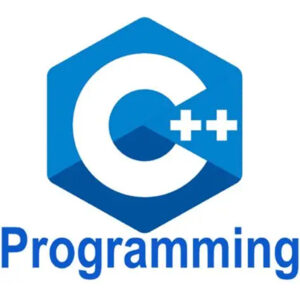
Overview
C++ is a powerful, high-performance programming language that supports both procedural and object-oriented programming. It is widely used for system software, game development, and real-time applications. Known for its speed and flexibility, C++ provides fine-grained control over hardware and memory management.
Study Mode:
Online/Offline/Hybrid
Duration:
25 to 60 hours
Curriculum For:
BCA, B.Tech, MCA, M.Tech
Batch Seats:
Limited
Learning outcomes
- Understand the fundamentals of C++ syntax and structure.
- Develop problem-solving skills using C++ programming concepts.
- Implement object-oriented programming with classes and objects.
- Apply concepts of inheritance, polymorphism, and encapsulation.
- Manage memory efficiently using pointers and dynamic allocation.
- Build real-world applications and perform file handling in C++.
Career information
C++ offers strong career opportunities in software development, system programming, and embedded systems. It is widely used in game development, operating systems, and high-performance applications. Professionals skilled in C++ are in demand in industries like finance, telecom, and robotics. C++ expertise also opens doors to roles in competitive programming and software engineering.
Career Path
- Software Developer
- Game Developer
- Embedded Systems Engineer
- System Programmer
- Financial Software Developer
Program syllabus
C++ Programming Curriculum
| Module 1: Introduction to C++ Programming |
|---|
| History and Evolution of C++ |
| Setting up Development Environment (Code::Blocks, Visual Studio, GCC) |
| Structure of a C++ Program |
| Basic Syntax & I/O Operations (cin, cout) |
| Data Types, Variables, and Constants |
| Comments and Code Readability |
| Module 2: Control Structures |
|---|
| Conditional Statements (if, else, switch) |
| Looping Structures (for, while, do-while) |
| Nested Loops & Flowcharts |
| break, continue, and goto Statements |
| Hands-on: Simple Calculator, Number Guessing Game |
| Module 3: Functions & Recursion |
|---|
| Function Declaration and Definition |
| Call by Value vs. Call by Reference |
| Default & Inline Functions |
| Recursion and Recursive Patterns (Fibonacci, Factorial) |
| Function Overloading |
| Module 4: Arrays, Strings & Pointers |
|---|
| One-dimensional & Multi-dimensional Arrays |
| String Handling (strlen, strcpy, strcmp) |
| Introduction to Pointers |
| Pointer Arithmetic |
| Arrays and Pointers |
| Dynamic Memory Allocation (new, delete) |
| Practical: String Palindrome Checker, Array Sorting |
| Module 5: Object-Oriented Programming (OOP) |
|---|
| Introduction to OOP Concepts |
| Classes and Objects |
| Constructors & Destructors |
| this Pointer |
| Static Members |
| Hands-on: Bank Account Class, Student Management |
| Module 6: Advanced OOP Features |
|---|
| Inheritance (Single, Multilevel, Hierarchical, Multiple via Interfaces) |
| Polymorphism (Compile-time and Run-time) |
| Virtual Functions & Pure Virtual Functions |
| Abstract Classes |
| Operator Overloading |
| Function Overriding |
| Module 7: File Handling in C++ |
|---|
| File Streams: ifstream, ofstream, fstream |
| Reading from and Writing to Text & Binary Files |
| File Operations: Open, Close, Read, Write, Append |
| File Pointers & Error Handling |
| Mini Project: Student Record System |
| Module 8: Templates & Exception Handling |
|---|
| Function Templates & Class Templates |
| Template Specialization |
| Exception Handling (try, catch, throw) |
| Creating Custom Exceptions |
| Module 9: Standard Template Library (STL) |
|---|
| Introduction to STL |
| Containers: vector, list, map, set, queue, stack |
| Iterators & Algorithms |
| Hands-on Practice: Sorting, Searching using STL |
| Module 10: Advanced Topics |
|---|
| Lambda Expressions |
| Smart Pointers (unique_ptr, shared_ptr |
| Move Semantics and std::move |
| Namespaces and std |
| Multithreading Basics (std::thread) |
| Memory Management Deep Dive |
| Module 11: Data Structures Using C++ |
|---|
| Linked Lists (Singly, Doubly) |
| Stacks & Queues (with Arrays and Linked List) |
| Trees (Binary Tree, BST, Traversals) |
| Graph Basics (DFS, BFS) |
| Hashing and Hash Tables |
| Priority Queues and Heaps |
